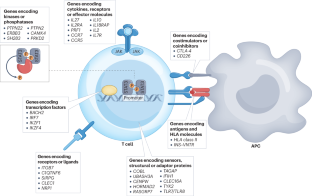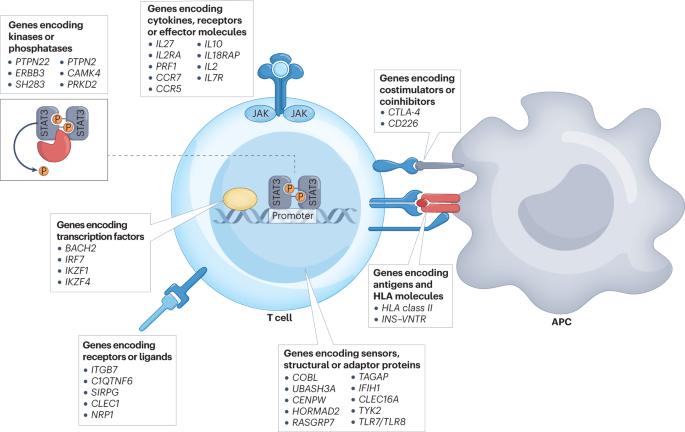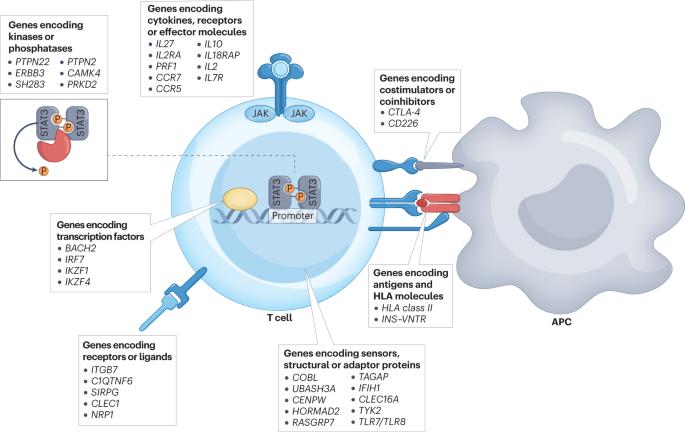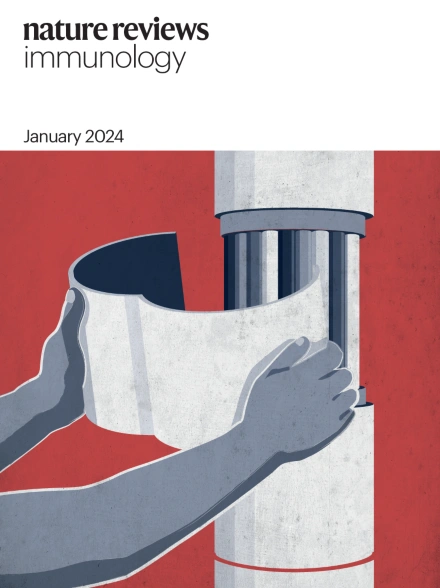The immunology of type 1 diabetes
IF 67.7
1区 医学
Q1 IMMUNOLOGY
引用次数: 0
Abstract
Following the seminal discovery of insulin a century ago, treatment of individuals with type 1 diabetes (T1D) has been largely restricted to efforts to monitor and treat metabolic glucose dysregulation. The recent regulatory approval of the first immunotherapy that targets T cells as a means to delay the autoimmune destruction of pancreatic β-cells highlights the critical role of the immune system in disease pathogenesis and tends to pave the way for other immune-targeted interventions for T1D. Improving the efficacy of such interventions across the natural history of the disease will probably require a more detailed understanding of the immunobiology of T1D, as well as technologies to monitor residual β-cell mass and function. Here we provide an overview of the immune mechanisms that underpin the pathogenesis of T1D, with a particular emphasis on T cells. The first immune-targeted drug for type 1 diabetes (T1D), teplizumab, received regulatory approval by the US FDA in 2022. In this Review, Herold, Walker and colleagues examine the immune mechanisms that underpin T1D and provide an overview of immune-targeted strategies for T1D that are currently in development.



1 型糖尿病的免疫学
自一个世纪前胰岛素的重大发现以来,对1型糖尿病(T1D)患者的治疗主要局限于监测和治疗代谢性葡萄糖失调。最近,首个以 T 细胞为靶点的免疫疗法获得了监管部门的批准,该疗法可延缓胰腺 β 细胞的自身免疫破坏,这凸显了免疫系统在疾病发病机制中的关键作用,并有望为其他以免疫为靶点的 T1D 干预疗法铺平道路。要提高此类干预措施在疾病自然史中的疗效,可能需要更详细地了解 T1D 的免疫生物学,以及监测残余 β 细胞数量和功能的技术。在此,我们概述了支撑 T1D 发病机制的免疫机制,并特别强调了 T 细胞。
本文章由计算机程序翻译,如有差异,请以英文原文为准。
求助全文
约1分钟内获得全文
求助全文
来源期刊

Nature Reviews Immunology
医学-免疫学
CiteScore
93.40
自引率
0.40%
发文量
131
审稿时长
6-12 weeks
期刊介绍:
Nature Reviews Immunology is a journal that provides comprehensive coverage of all areas of immunology, including fundamental mechanisms and applied aspects. It has two international standard serial numbers (ISSN): 1474-1733 for print and 1474-1741 for online. In addition to review articles, the journal also features recent developments and new primary papers in the field, as well as reflections on influential people, papers, and events in the development of immunology. The subjects covered by Nature Reviews Immunology include allergy and asthma, autoimmunity, antigen processing and presentation, apoptosis and cell death, chemokines and chemokine receptors, cytokines and cytokine receptors, development and function of cells of the immune system, haematopoiesis, infection and immunity, immunotherapy, innate immunity, mucosal immunology and the microbiota, regulation of the immune response, signalling in the immune system, transplantation, tumour immunology and immunotherapy, and vaccine development.
 求助内容:
求助内容: 应助结果提醒方式:
应助结果提醒方式:


